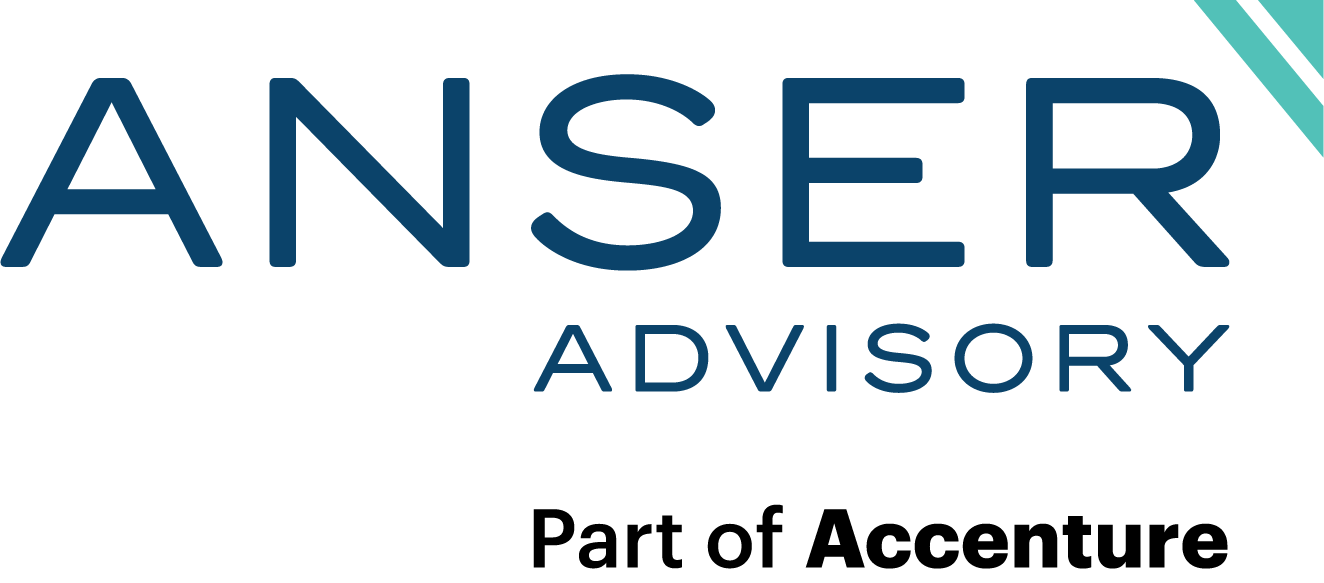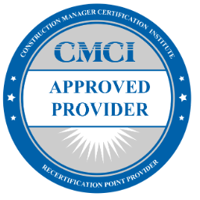You did it! You got promoted to project manager and were assigned your first construction project. You’re in charge, and the excitement is pumping through your veins as you sit at your new desk. After grabbing your first cup of coffee and adjusting your nameplate, you sit back, take a sip, and then realize…."Now what?” In your last job as a cost estimator, you remember the PM talking about a project charter and project management plan but have no idea what those even look like. It sure would be nice if the company had a manual of some sort for new project managers that defined expectations and procedures or even had templates. You’re suppressing that nagging fear of making a mistake. It’s only your professional reputation at risk. Risk. Wasn’t that something else your professor droned on about…
What's the bottom line?
77% of high-performing organizations realize the value of project management (PM) to bring projects in on time, on budget, and at a high quality (Hive.com). Yet 57% of projects fail due to a “breakdown in communications” (Spike Cavell) and another 39% fail due to “lack of planning” (Team Gantt, Research Gate). Industry standards form a common foundation for practices across a specific industry. However, the strength of project management comes from the establishment of standard operating procedures, or SOPs, by the company you work for.
Benefits of Construction Project Management Standard Operating Procedures
1. Reduced personal and organizational risk and liabilities
Construction projects are fraught with risks and liabilities that can often result in litigation. When there is a dispute, clients, attorneys, and insurance companies look to see if the professional acted within the accepted “standard of care.” Standard of care refers to a professional’s duty to act reasonably and provide quality services. If you fall short of the standard of care, a client usually has the right to sue.
But who determines what is reasonable?
The standard of care can vary drastically across industries and professions. Professional associations such as the Construction Management Association of America (CMAA) and Project Management Institute (PMI®) grew out of an industry need to define and publish "standards of practice" (alternatively called "standard operating procedures" by some companies, including ours). For example, CMAA’s standards of practice describe how construction managers should act and provide quality services.
There are benefits for both businesses and employees.
If a company establishes its construction project management means and methods founded on industry-accepted standards of practice, it's easier to prove the company’s employees acted within a standard of care, which reduces potential risk and liability for the company.
Likewise for the employee, company PM SOPs define expectations and guidelines that, if followed, provide protection against the risk of bad decisions and improper behaviors. Otherwise, you completely rely on the employee’s knowledge, experience, and ethics when they make decisions and take (or fail to take) actions on the company’s behalf.
2. Improved communication of project goals, deliverables, and responsibilities
PMI® advocates for using a project charter and a well-thought-out project management plan (PMP) developed early in the project planning phase and followed throughout the execution of the construction project. The project charter defines the project goals, key stakeholders, funding, and scope guardrails. In other words, the project charter defines what "success" is for the project in terms of the triple constraints of time, money, and the quality of the end product (scope) that guides every decision going forward.
What does a PMP do?
-
The PMP defines the environment in which the project will operate and ‘how’ the project manager envisions the project will function within it. This goes far beyond construction means or methods or the schedule of how tasks will occur.
-
The PMP establishes which stakeholders influence the project, the responsibility and timelines for deliverables, and procedures for managing the changing conditions as the project progresses.
-
The PMP also keeps the project team focused on proactively confirming planning assumptions and managing identified risks that keep the project on schedule.
Your company’s PM SOPs should contain templates and procedures for developing and managing the project charter and PMP. Yes, each project, by definition, is unique. However, established PM SOPs save you time spent figuring out project processes, reduce mistakes, and improve efficiency. The more well-versed employees become in the PM SOPs, the more they can anticipate how others on the project team will act and understand who is responsible for which deliverables.
3. Effective organizational learning and process improvement enabled
Published and practiced PM SOPs serve as a consistent, repeatable framework for your company and your employees to execute projects within. Templates help new employees execute tasks that they may not have had prior knowledge or experience with. While they may not fully understand the ‘why’ behind each task or information requirement, they can at least think about the purpose and avoid missing a step they may otherwise have forgotten. Mentors, supervisors, and team members should always be willing to explain the purpose behind the SOP versus simply stating, “That’s always how we’ve done it.” Knowing the 'why' behind PM SOPs sets employees up for initial success in a new role and enables them to grow professionally.
With a PM SOP framework, the organization can measure the effectiveness of defined processes and the quality of PM products. For example, are construction submittal reviews or access badging taking longer than expected? What's the cause of it, and how can we improve it? The answer might be that perhaps we’re missing a stakeholder.
Even more valuable is the ability of an organization to learn and capture proprietary knowledge through the use of PM SOPs. As projects progress, employees exercise the PM SOPs and find things that the procedures may have missed or learn new things that could relate to future projects. In the previous submittal review example, we can add that stakeholder to future project PMPs. As time progresses and the industry grows, new technologies or techniques may improve how PM tasks can be done. A company can then pursue research and development to bring that new technology to future clients. Ultimately, PM SOPs create a framework for the organization to grow and improve.
Anser Advisory Can Help
The Anser Advisory project and construction management training solutions, PM Fundamentals, and Professional CM courses strongly advocate for established PM SOPs founded on standard operating procedures from leading professional organizations.
Our Project Management Fundamentals course provides an overview of project management fundamentals focusing on construction management. Our facilitators will provide you with templates for the project charter, PMP, and other essential documents, which you and your company can then use as a starting point to develop your own PM SOPs. If you want to learn more about this course, please click the link below to request more information.
Our Professional Construction Management (PCM) course prepares construction managers for the different challenges and situations that construction managers face in the field. The course is a six-day comprehensive curriculum centered around CMAA’s body of knowledge and focuses on the core competencies of construction management. The course prepares CMs to become Certified Construction Managers (CCMs). Our next PCM Course training starts soon. Register today!
About Anser Advisory
Anser Advisory is an ENR Top 50 Program Management firm and Great Place to Work® designated 2021 Best Workplaces in Consulting & Professional Services™, specializing in capital program advisory and consulting services, organization preparedness, strategy, funding, process development, program controls, and project, program, and agency construction management. Anser Advisory offers clients solutions that address owner pain points across the capital development cycle, from pre-planning through construction and closeout within a diverse range of social and civil infrastructure end markets.
Anser Advisory is a CMCI Approved Provider
A CMCI Recertification Point Provider (RPP) is an organization that has partnered with CMCI and is committed to providing education that meets the CMCI Board of Governors' standards. These partnerships help individuals earn or maintain the Certified Construction Manager (CCM) and Certified Associate Construction Manager (CACM) credentials by offering professional development credit through their events, courses, seminars, and webinars.
CMCI encourages CCMs and CACMs to consider courses from CMAA or CMCI RPPs to meet the professional development requirements necessary to maintain the CCM to CACM credential. CMCI RPPs can easily be identified by the CMCI Recertification Point Provider logo.
About the Author
Paul Buckley, PE, CCM
 Mr. Buckley has over 40 years of experience. He is a Registered Professional Engineer and Certified Construction Manager responsible for all technical aspects of program, project, and construction management, including business development strategies, contract negotiations, and field/production operations supervision. Mr. Buckley has demonstrated the ability to develop and implement program, project, and construction management services and marketing strategies, while nurturing business partner loyalty and staff motivation, all of which allow Anser Advisory to differentiate itself in the market in terms of client satisfaction and repeat business. He is responsible for leading numerous multi-disciplinary teams of professionals to develop multi-million-dollar, multi-year programs, and projects. He is an entrepreneur by spirit who enjoys helping organizations grow and an industry professional passionate about teaching, mentoring and employee development.
Mr. Buckley has over 40 years of experience. He is a Registered Professional Engineer and Certified Construction Manager responsible for all technical aspects of program, project, and construction management, including business development strategies, contract negotiations, and field/production operations supervision. Mr. Buckley has demonstrated the ability to develop and implement program, project, and construction management services and marketing strategies, while nurturing business partner loyalty and staff motivation, all of which allow Anser Advisory to differentiate itself in the market in terms of client satisfaction and repeat business. He is responsible for leading numerous multi-disciplinary teams of professionals to develop multi-million-dollar, multi-year programs, and projects. He is an entrepreneur by spirit who enjoys helping organizations grow and an industry professional passionate about teaching, mentoring and employee development.



